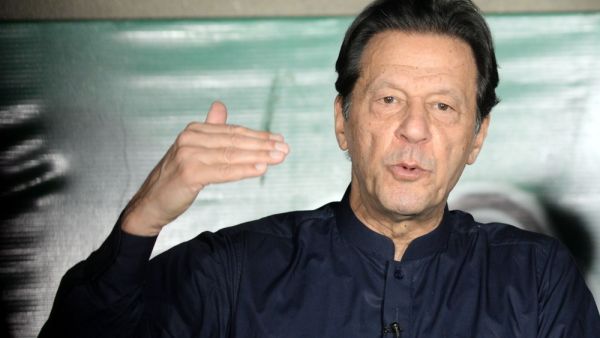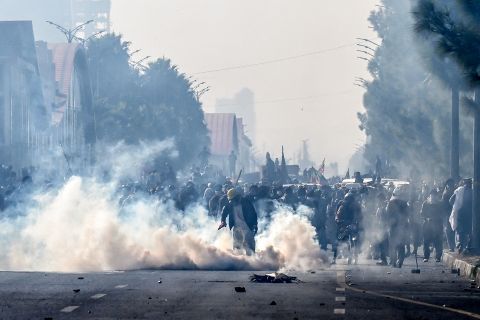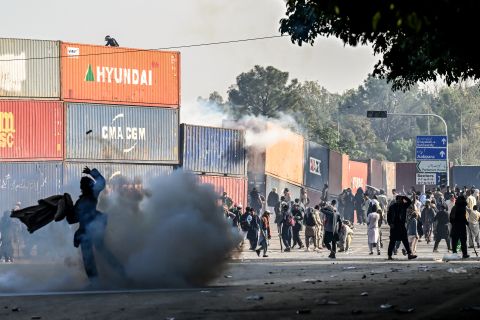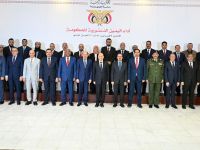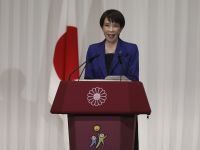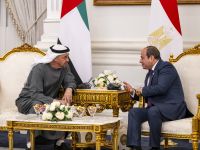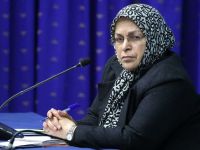ALBAWABA- In a high-profile ruling, a Pakistan court on Friday sentenced former Prime Minister Imran Khan to 14 years in prison on corruption charges, marking a significant moment in the country’s turbulent political landscape.
His wife, Bushra Bibi, was also convicted in the case, receiving a seven-year sentence. The charges stem from allegations of graft linked to the Al-Qadir Trust, a welfare foundation the couple established together.
The court convened at the jail near Islamabad where Khan has been held since August 2023 on a litany of charges totaling around 200 cases. His party, Pakistan Tehreek-e-Insaf (PTI), claims the conviction is a tactic to force Khan out of politics.
Despite the mounting legal challenges, Khan remains defiant. "I will neither make any deal nor seek any relief," he declared from the courtroom after the verdict.
Bushra Bibi, a faith healer recently out on bail, was arrested again following the court’s decision. PTI has announced plans to appeal the verdict, calling it politically motivated.
The Al-Qadir Trust case has been the most prolonged legal battle against Khan, who has also faced accusations of inciting protests. While some of his previous convictions have been overturned, this ruling underscores the intensifying pressure on Khan and his party.
The timing of the conviction, a day after a rare meeting between PTI leaders and the government aimed at easing tensions, has raised eyebrows. Analysts speculate that backroom negotiations may have influenced the case's progression.
Since his ousting in 2022, the former cricket star turned politician has launched an unprecedented campaign against the military, openly criticizing Pakistan’s powerful generals, who are widely seen as the country’s kingmakers.
Khan has maintained that the charges against him are part of a systematic effort to disqualify him from returning to power.
Despite being barred from contesting February’s elections, Khan’s popularity continues to pose a challenge to the ruling coalition, which came to power after a military-backed crackdown weakened PTI’s influence.
The United Nations has also weighed in, with a panel of experts previously describing Khan’s detention as lacking legal basis and aimed at sidelining him politically.
As Khan’s legal team prepares to challenge the verdict, the case adds another layer of complexity to Pakistan’s fraught political environment.
With his popularity undiminished among a significant portion of the electorate, the question remains whether these legal maneuvers will consolidate the current coalition’s hold on power or fuel further political unrest.



